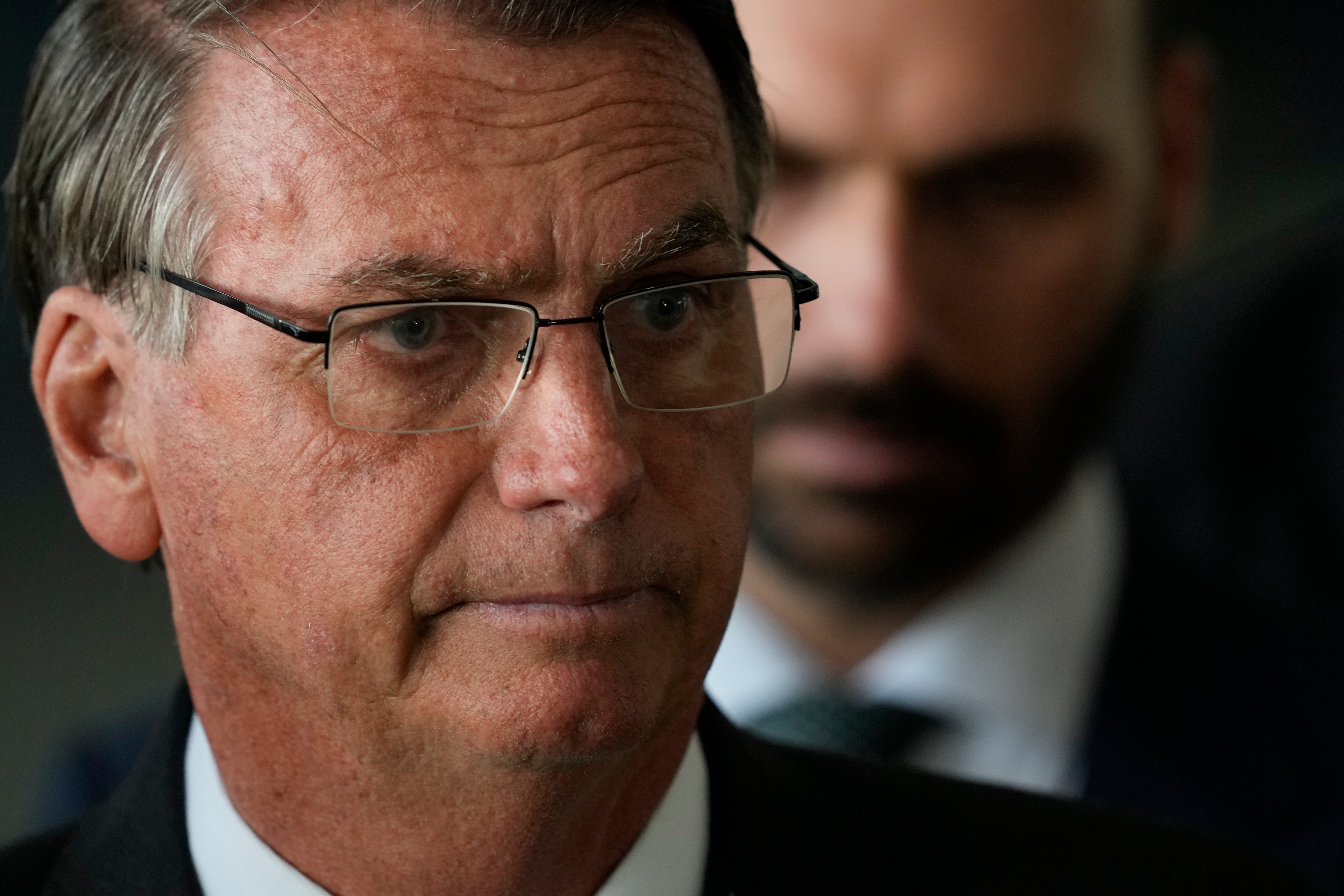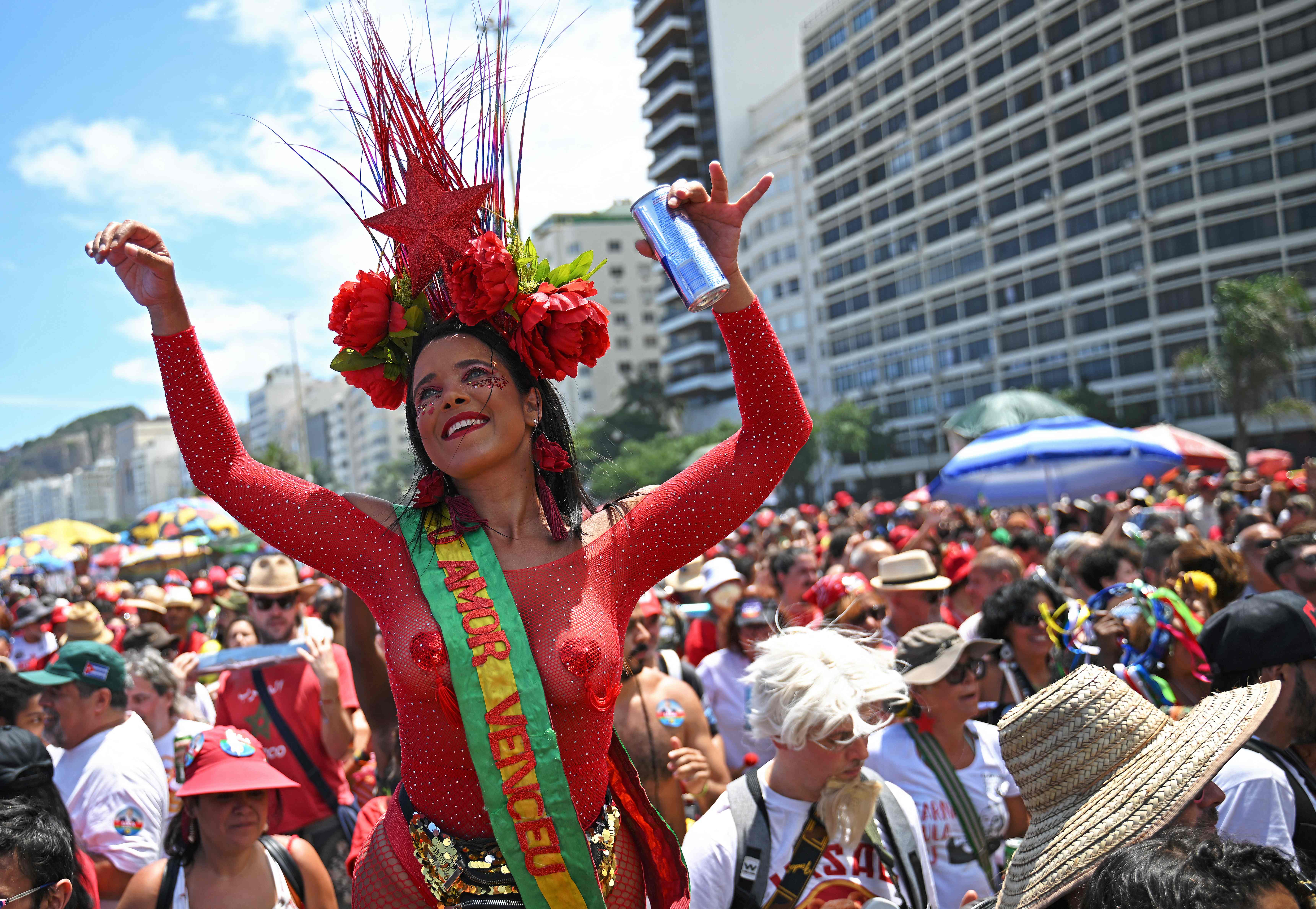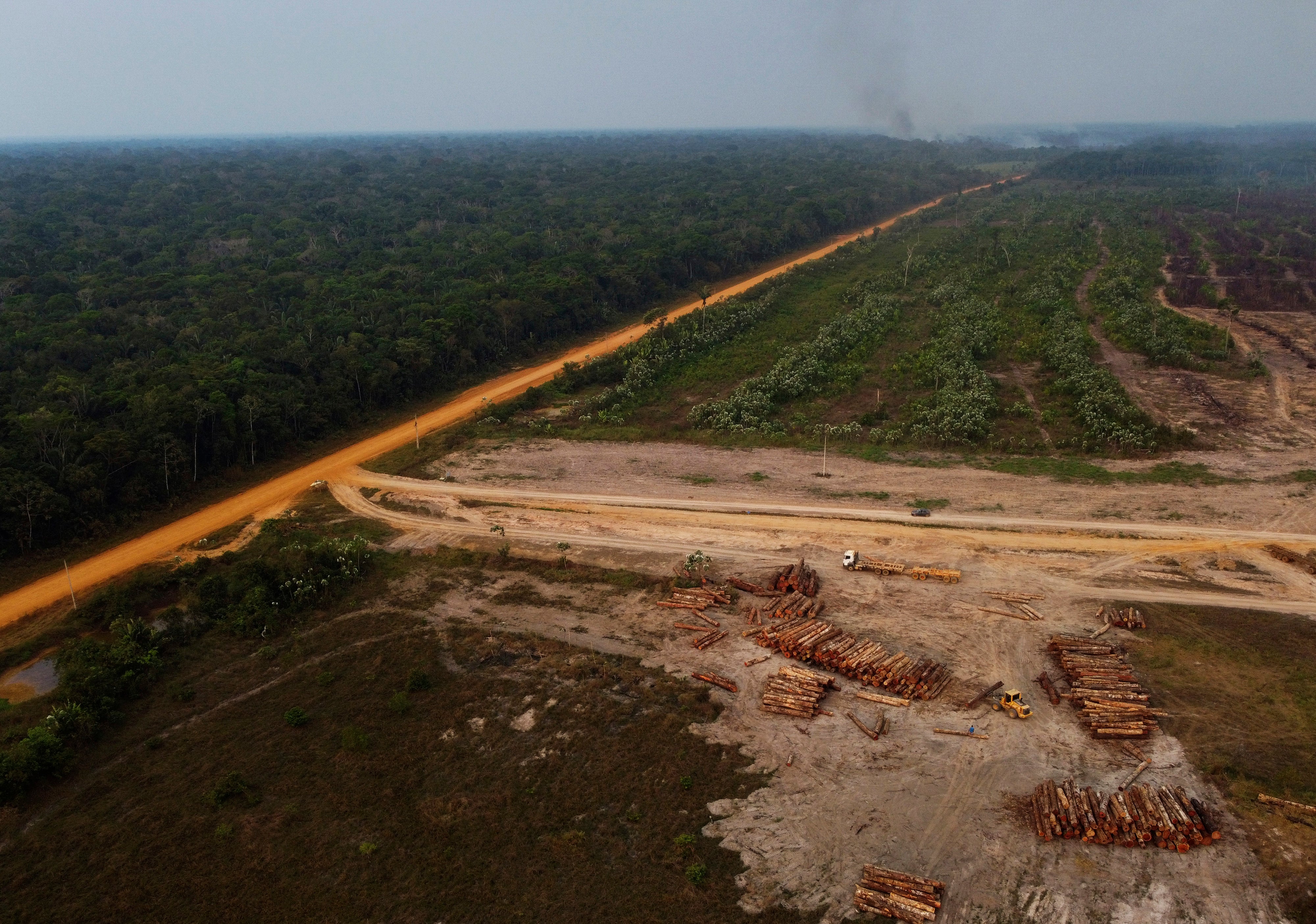
Among the biggest draws at the Cop27 summit in Egypt is a world leader who doesn’t take office until January. Luiz Inacio Lula da Silva arrives in Sharm el-Sheikh after winning a momentous election in Brazil with huge implications for the Amazon rainforest – the “lungs of the planet” – which has suffered severe depredation under hard-right predecessor Jair Bolsonaro.
Lula is expected to have meetings with, among others, Joe Biden, Emmanuel Macron and UN secretary-general Antonio Guterres, all of whom were quick to congratulate him on his win.
Bolsonaro declared when elected in 2019 that Brazil would not host Cop25 as scheduled, and did not turn up for Cop 26 in Glasgow last year after facing international condemnation over Amazon deforestation.
There was a collective breath of relief among those concerned about the climate emergency at the departure of Bolsonaro, on whose watch Brazil’s emissions increased by 12 percent last year alone. In the past 12 months, deforestation in the Amazon increased by 64 per cent, affecting an area almost twice as large as New York City – on top of the loss of an area larger than Belgium in his first two years in power.
There has been a sharp rise in mining, logging and wholesale clearances with indigenous communities being deprived of their land, often through violent intimidation, after 600 regulatory changes in just one year.
There is little regret from the Biden administration at the departure of Bolsonaro, who revelled in his “Trump of the Tropics” moniker. In the first telephone call between the US president and Lula after his narrow 31 October election victory, the climate crisis was one of the main topics discussed. Macron is said to have played a key role in freezing a trade deal between the EU and the Mercosur bloc – Brazil, Argentina, Uruguay and Paraguay – because of his dismay and alarm at Bolsanaro’s actions. Guterres had stated more than once that the Amazon must be protected for the sake of the planet.
Lula declared in his victory speech that the ecological damage inflicted on the world’s largest rainforest by his predecessor will be halted and reversed. There will now be huge pressure on the 77-year-old to deliver on his commitment.
There was a significant fall in Amazon deforestation during Lula’s previous term as president, from 2003 to 2011. He was prevented from running in 2019 after being jailed on corruption charges which the country’s Supreme Court later ruled were bogus and politically- motivated.
Lula’s team insists he is prepared to pick up the mantle once again, not just for Brazil but also on a wider scale, with plans for a green alliance with two other big rainforest states, Indonesia and the Democratic Republic of the Congo (DRC) with the possibility of Peru and Colombia also joining.

Brazil, Indonesia and the DRC signed an agreement at Cop26 in Glasgow last year to stop and reverse deforestation by 2030, but there appeared to be little prospect of Brasilia hitting the targets under Bolsonaro. With Lula back in power the alliance could make joint proposals on carbon markets and finance, giving it greater bargaining power with the West.
“Having such a strong voice like Lula’s in any future alliance would amplify and accelerate efforts to just and climate-friendly economic development” said Annisa Rahmawati, head of the Indonesian conservation group Satya Bumi. “It will put pressure on richer countries and also ensure that our forests remain standing.”
Along with international goodwill there is also financial help for Lula’s new government. Norway and Germany will resume its Amazon protection subsidies to Brazil which were suspended in 2019 under Bolsonaro. Oslo’s contribution is around $33m annually. Germany has pledged $1.5bn per year in international biodiversity finance and a sizeable portion of it is expected to go towards the Amazon. Heiko Thoms, the country’s ambassador to Brazil, said: “Brazil achieved impressive results in reducing deforestation in Amazonia and it can do the same again in the future.”

Domestically, the Supreme Court in Brasilia authorised the reactivation of the Amazon Fund in the state development bank, which had been effectively frozen by Bolsonaro, freeing up £525m lying unused.
“The Amazon Fund is the biggest fund for the protection of forests ever created”, said Tasso Azevedo, a coordinator for Climate Observatory and an architect with the fund. “The losses through its paralysis over four years are irreplaceable, its reactivation is urgent and enables us to start protecting the forest, promote sustainable development, and fight deforestation again.”
However, the narrowness of Lula’s victory illustrates that Bolsanaro’s repeated claims that the West is trying to stop Brazil from taking advantage of its assets strikes a chord among many voters.
Ricardo Salles, an environment minister in the Bolsonaro administration who was forced to resign after being accused of illegally trading in Amazon timber, was elected to Congress in the country’s most populous state, Sao Paulo, with a sizeable majority. Marcos Rocha was re-elected as governor of Rondonia state two days after removing environmental protection from a vast swathe of territory.
Lula said in his victory speech: “We will once again monitor and do surveillance in the Amazon. We will fight every illegal activity. At the same time, we will promote sustainable development of communities in the Amazon.”

The drive for sustainable development has led to a number of proposals being forward.
Among them is one from the Aya Initiative, which plans to tap into private enterprise in sustainable environmental projects. Their report, The Amazon Marathon: Brazil to lead a low-carbon economy from the Amazon to the World, will be presented at Cop27.
It argues that Brazil has failed to achieve the same success as countries such a China and South Korea by using a resource-intensive economic model, and that a new sustainable approach is needed.
“After making significant advances during the 2000s, Brazil returned to the hunger map in recent years, sliding back to levels last seen in the 1990s,” it says “More 33 million people now suffer from hunger. Deforestation has been directly connected to the rapid expansion of agricultural activities. In the [northern collection of states known as] Legal Amazon, a staggering 95 per cent of the deforestation is illegal, nearly all taking part on public land through illegal land grabs” it says.
Alexandre Allard, one of the founders of Aya, who is attending Cop27, maintains that “it will be possible to turn Brazil into the biggest green economy on the planet”.
The French entrepreneur, who was born in Washington DC and spent part of his childhood in Ivory Coast, sold his data company Consodata to Telecom Italia for €400m two decades ago and moved to Brazil.
He is creating an Aya hub in Sao Paulo in which hundreds of commercial concerns are co-located in a “green chain”. Eventually, he hopes to raise $10bn for the Brazilian economy through sustainable partnerships.
“There is green money around for the planet which needs to be utilised for the benefit of the environment,” he said. “Brazil is ideally placed to use a portion of this for the benefit of the Amazon, the people of this country, and the planet. I know a lot of prestigious companies who want to get involved.”
Allard is currently engaged in a $530m project, Matarazzo City – a 30,000-square-metre area of reclaimed land which, he says, will be carbon neutral. There are 10,000 trees with two parks, Mario Covas and Trianon, due to be attached to the project soon. “Cities produce an enormous amount of carbon emissions. It is great that we are trying to save the forests, but cities need to be healed as well for true sustainability,” he said.
Patricia Ellen da Silva, co-founder of Aya, is a former economic development secretary in the Sao Paulo state government and currently managing partner for Brazil in the advisory firm, Systemiq.
“I focused on sustainable economic development when working for the Sao Paulo government and saw how Brazil under Bolsonaro became an international pariah,” she said. The Bolsonaro government tried to block initiatives we were pushing through at state level, it was a constant battle, but even then we had a lot of success.”
She added: “The private sector must play a key role in decarbonising the economy and play a part in achieving social justice, climate justice, and technology, it’s the logical step.”
Ellen stressed the human factors behind the Amazon crisis. “The people in that region are behind the rest of Brazil in all aspects of wellbeing – employment, health, education, safety. The indigenous community are losing their land and livelihood.”
Ellen’s grandmother was from the indigenous community while her grandfather was a miner from Europe.
“It was, as you’d imagine, an interesting match,” said the single mother of young twins. “What I also found interesting from my family history was how strong the women, my grandmothers, my mother had to be to survive in a patriarchal society.
“Even now, among the deprived people of Amazon, it is women who get the worst deal. We need to change that. So, sustainable development cannot just be a wish, it really is a necessity.”







